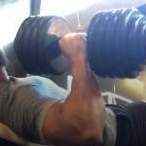Low Carb É Realmente Melhor Para Composição Corporal?
-
Quem Está Navegando 0 membros estão online
- Nenhum usuário registrado visualizando esta página.
-
Conteúdo Similar
-
- 11 respostas
- 345 visualizações
-
- 8 respostas
- 193 visualizações
-
- 1.095 respostas
- 278.999 visualizações
-
- 15 respostas
- 1.787 visualizações
-
- 2 respostas
- 154 visualizações
-








Posts Recomendados
Crie uma conta ou entre para comentar
Você precisar ser um membro para fazer um comentário
Criar uma conta
Crie uma nova conta em nossa comunidade. É fácil!
Crie uma nova contaEntrar
Já tem uma conta? Faça o login.
Entrar Agora